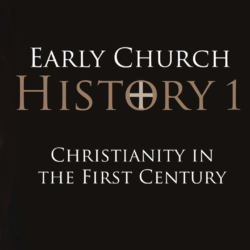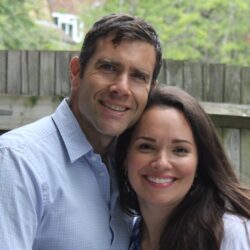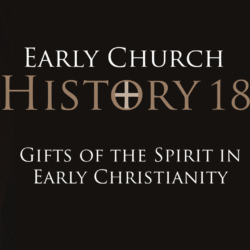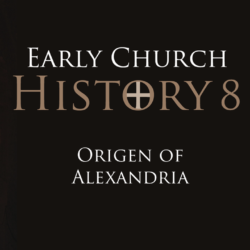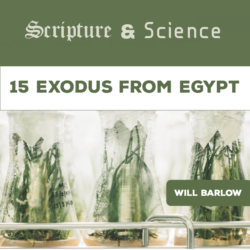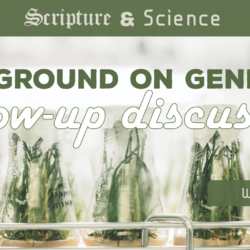500 years ago, there was only one Christian denomination throughout most of the world. 500 years ago, the church and the government killed those who resisted tradition. 500 years ago, no one could read the bible in their own language. How did we get from there to here? Discover the wild and exciting story of Christianity for the last 500 years, so you can understand how the world ended up the way it is now, avoid repeating the mistakes of the past, and gain inspiration from heroic people who made a difference.
In this first lecture, you’ll learn:
1. What the religious world was like 500 years ago in Europe
2. Precursors to the Reformation, including John Wycliffe and Jan Hus
3. The movement called humanism, including Gutenberg’s printing press and Desiderius Erasmus
All the notes are available here as a pdf.
—— Notes ——
Three aims for this class:
- to understand why the world is the way it is now
- to avoid repeating the mistakes of the past
- to gain inspiration from heroic people who made a difference
I want to talk about Martin Luther, but first need to do some background
- key person
- reason why this class if 500 instead of 600 or 400
- on Oct 31st 1517 he started the Reformation (i.e. the changing of Christianity)
- before we can understand what he reformed, we have to understand what was already there
Three points for today:
- Setting the Scene
- Precursors of the Reformation
- Humanism
1| Setting the Scene
- life and death
- no electricity, running water, indoor plumbing, gas heat, computers, phones, facebook, cars, postal service
- thinly populated (black death in 14th)
- high infant mortality
- 15-35% of infants died before first birthday
- 10-20% of children died before 10
- agricultural subsistence
- 65-90% were peasants or small farmers
- suffering and death were pervasive (bad medical care, famine, epidemic disease, war)
- highly stratified society, most stay at same status they were born into
- towns had extreme differences in wealth
- beliefs/practices
- infant baptism
- church as God’s instrument of salvation on earth
- death => eternal torment in hell, purgatory, heaven
- needed right belief and right behavior, which was determined by church
- faith was not enough for salvation, needed concrete actions
- authority on the basis of apostolic succession and good standing with hierarchy
- hierarchy: pope, bishops, local priests
- religious orders: monks, nuns,
- contemplative orders: Benedictines, Cistercians, etc. cloistered lives of prayer and devotion
- mendicant orders: Franciscans, Dominicans, Augustinians, etc. served through preaching, teaching, missionizing, and hearing confessions
- weekly mass with Eucharist as weekly sacrifice to God (transubstantiation)
- priest’s words make bread and wine Christ’s actual body and blood
- sacraments: means by which God dispenses grace through priests who claimed authority on the basis of apostolic succession
- baptism, penance, communion, confirmation, matrimony, extreme unction, and holy orders
- communion was only once a year before which one did confession and penance to cleanse sins
- processions and pilgrimages (relics)
- vigorous practices
- books of hours were most common printed book 50 years before Reformation
- endowing masses, paying for urban preachers, paying for church upkeep
- many were taking their faith seriously
- anti-clericalism : disliked clergy’s exemptions
- clergy exempt from civic obligations (taxes, tithes, civil trial, night watch, firefighting, war)
- tithe, clerical fees
- greed, holding multiple church offices (Simony), immorality, concubines
- Babylonian captivity (popes in Avignon)
2| Precursors of the Reformation
- John Wycliffe (1330-1384): translated Bible into English
- English philosopher and theologian, teacher at Oxford
- translated Bible into English from Latin Vulgate
- followers called Lollards, finished this project after John’s death
- no printing press yet
- “the jewel of the clergy has become the toy of the laity”
- focused on Bible, anticlericalism (did not like pope influencing secular power)
- in temporal things the king is above the pope
- called “Morning Star of the Reformation”
- in 1377 pope Gregory XI sent 5 copies of bull against Wycliffe to England with 18 theses of Wycliffe denounced
- he was protected by his relative who was powerful
- King Richard II of England married Anne from Bohemia
- Wycliffe’s ideas spread to Bohemia
- Jan (John) Hus (1372-1415)
- translated some of Wycliffe’s writings into Czech
- rector (or head) of the University of Prague
- fiery preacher against immorality of papacy and clergy
- wanted to distribute wine and bread to people at communion
- excommunicated by papal bull in 1409 by pope Alexander V
- followers called Hussites defeated 5 consecutive papal crusades
- a century later 90% of those in Bohemia were non-Catholic
- Emperor Sigismund guaranteed him safe passage to defend himself at council of Constance (1415)
- made his will before leaving
- condemned and burned at the stake
3| Humanism
- Johannes Gutenberg (1395-1468)
- German blacksmith, goldsmith, printer, publisher
- invented mechanical movable type printing in 1439
- initiated printing revolution
- made possible the rapid dispersal of information
- played a key role in the renaissance and reformation
- the Gutenberg Bible rolled off the press in 1455 (180 copies)
- Desiderius Erasmus (1466-1536)
- Christian humanism (not secular humanism) was an attempt to recover classical Greek and Latin literature and apply it to contemporary morals and politics
- “ad fontes” or “to the sources”: the motto of humanist scholars
- concern over deteriorated Latin and scholasticism, which overly intellectualized without producing moral change
- for Christianity, “ad fontes” meant going back to original Hebrew and Greek
- textual criticism began (trying to find best manuscripts of ancient documents)
- bible and church Fathers provided authentic Christianity
- optimistic view of human nature
- Erasmus was the most important humanist “prince of the humanists”
- he wanted to slowly reform Christianity from the top down through scholarship
- major problems, he thought, were ignorance and immorality
- Enchiridion (Handbook) in 1503
- Praise of Folly (1511) as a satire criticizing religious practices
- Greek NT (1516) with his own Latin translation in parallel
—— Links ——
- For this lecture, I leaned heavily on Brad S. Gregory’s History of Christianity in the Reformation Era class at The Teaching Company
- The three main textbooks for this class include:
- The European Reformations by Carter Lindberg
- The Radical Reformation by George Williams
- Modern Church History by Tim Grass
- Check out these other Restitutio historical podcasts
- Intro music: “District Four” by Kevin MacLeod. Licensed under Creative Commons: By Attribution 3.0 License.

